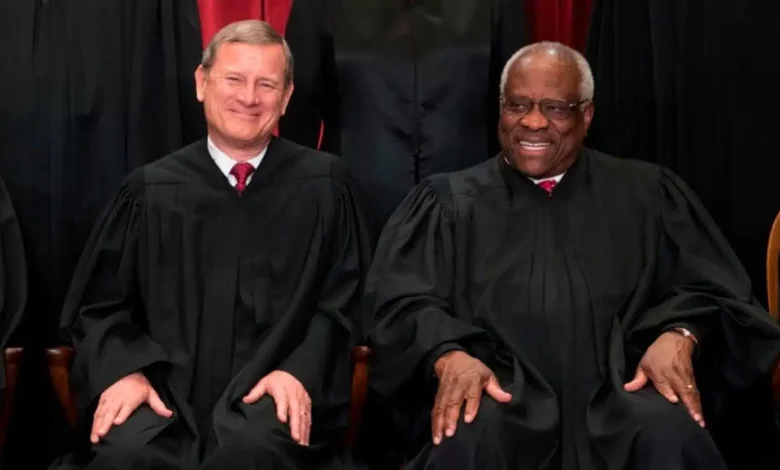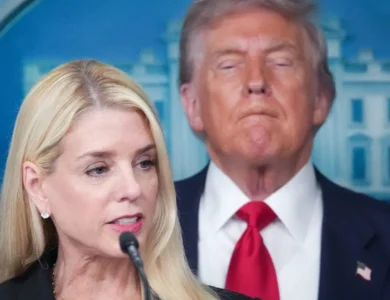Supreme Court Temporarily Protects DOGE From FOIA Demands

The U.S. Supreme Court stepped in to shield the Department of Government Efficiency (DOGE) from transparency demands, temporarily halting lower court orders that required the agency to respond to freedom of information requests tied to an ongoing lawsuit.
The move on Friday buys time for an agency created by President Donald Trump through Executive Order 14158 on Jan. 20, an aggressive initiative aimed at slashing waste and forcing bloated federal bureaucracies to answer for their spending.
The executive order directed the entity to “implement the President’s DOGE Agenda, by modernizing Federal technology and software to maximize governmental efficiency and productivity.”
Chief Justice John Roberts issued an administrative stay, effectively freezing the lower court orders while the Supreme Court decides how to proceed with the case. He offered no explanation for the move, leaving critics to question why transparency is being delayed yet again, The Epoch Times reported.
Read more: Twice-Failed Georgia Dem Stacey Abrams Drops Shocking News About Future
The orders issued by the federal district court in Washington “are hereby stayed pending further order of the undersigned or of the Court,” Roberts wrote in his new order.
The case, U.S. DOGE Service v. Citizens for Responsibility and Ethics in Washington (CREW), centers on allegations that DOGE is operating behind closed doors while exercising what CREW describes as “unprecedented” power over federal agencies. In the lawsuit, CREW argues that the public has a right to know how this influential body is making sweeping decisions under what it calls a cloak of “unusual secrecy.”
U.S. Solicitor General D. John Sauer filed an emergency application with the Supreme Court on May 21, seeking to block the lower court orders.
In the filing, Sauer argued that DOGE operates as an advisory body within the executive branch, not a federal agency, and therefore “is exempt from the Freedom of Information Act (FOIA).”
Read more: Payback Time! Pam Bondi Gives Blue States Big Dose Of KARMA
The Freedom of Information Act, which was signed into law in 1966 by President Lyndon B. Johnson, allows individuals “to obtain access to government information in executive branch agency records,” subject to certain exceptions.
“FOIA applies to records created by federal agencies and does not cover records held by Congress, the courts, or state and local government agencies,” a government website says.
Sauer noted in his filing that despite DOGE’s status as an advisory entity, a lower district court ordered it “to submit to sweeping, intrusive discovery just to determine if USDS is subject to FOIA in the first place.”
Sauer said the district court’s order “turns FOIA on its head, effectively giving [CREW] a win on the merits of its FOIA suit under the guise of figuring out whether FOIA even applies.”
Read more: Kamala Harris Blindsided by Nancy Pelosi – She Will Never Forgive Her
Moreover, he noted further, the court order “clearly violates the separation of powers, subjecting a presidential advisory body to intrusive discovery and threatening the confidentiality and candor of its advice, putatively to address a legal question that never should have necessitated discovery in this case at all.”
CREW opposed the government’s emergency application to stop the district court order on Friday, arguing that what the Trump administration “is really seeking is not relief from the district court’s narrowly-tailored discovery order, but rather a ruling on the merits of whether the United States DOGE Service, a new component of the Executive Office of the President, is operating as an ‘agency’ subject to the Freedom of Information Act.”
The brief said that in order to obtain information about DOGE’s “secretive structure and operations, CREW submitted an expedited FOIA request to DOGE on January 24, 2025,” but the agency did not respond in a timely manner.
CREW responded with a lawsuit, asserting that DOGE exercises “substantial independent authority”—a level of power that, according to their brief, effectively makes it an “agency” subject to both the Freedom of Information Act and the Federal Records Act.
Read more: Pelosi Warns ‘Time Is Running Short’ On Biden Dropout Decision
Trump appointed Elon Musk to lead DOGE with a special appointment that expires this month. Musk said last week he would begin to focus “24/7” on his companies.





